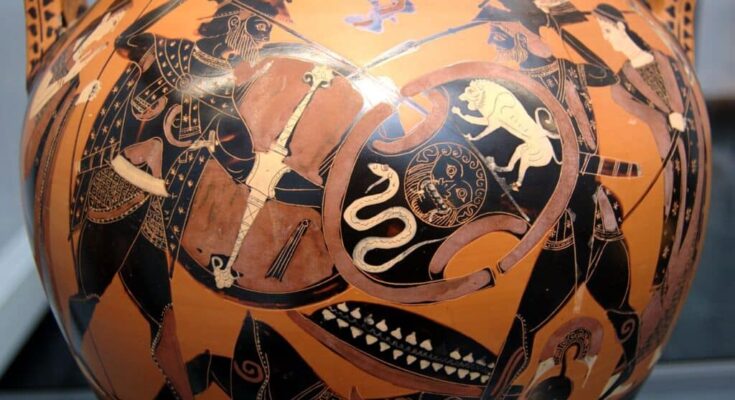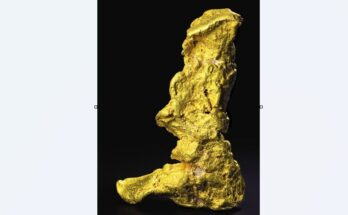
During the famous Trojan War, the city of Troy was not fighting against the Greeks independently. According to Homer’s Iliad, it had numerous allies. Later Greek records also speak of allies of Troy during the Trojan War.
Who were some of their most important allies, and what do we know about them?
Troy’s allies during the Trojan War
The primary source of information on Troy’s allies during the Trojan War comes from Homer’s Iliad, written in the seventh century BC. A particular part of this poem is the Catalogue of Ships. This provides an extensive amount of information on the various Greek states that participated in the war.
On the Trojan side, there is an equivalent list known as the Trojan Battle Order. This provides detailed information on the allies of Troy during the Trojan War.
It is the primary source of information on Troy’s allies, but certain later texts also provide relevant information. For instance, Ctesias wrote about Troy around the year 400 BC, as did Plato several decades later.
Nations of the Troad and allies of Troy during the Trojan War
Unsurprisingly, many of Troy’s allies were the other nations who lived in the Troad, the region in which Troy is located. These allies included Trojans residing outside of Troy itself, as well as other nations residing in the Troad, as well as in the vicinity.
The cities of Pityeia, Percote, Abydos, and Arisba are all included in this category. Homer does not specify the ethnicity of their inhabitants, but they may have been distantly related to the Trojans.
Pelasgians
Another notable nation from that same region are the Pelasgians. They are most famous as the pre-Greek inhabitants of Greece. However, they appear in Homer’s Iliad as inhabitants of the city of Larissa in the southwest region of the Troad.
Interestingly, the ancient Greeks frequently associated the Pelasgians with the Etruscans of Italy. The Etruscans supposedly migrated from western Anatolia to Italy around the time of the Trojan War. It is likely that this can be connected to the legends of Aeneas of Troy leading a migration to Italy after the Trojan War.
Furthermore, we also find independent references to the Pelasgians migrating to Italy at that same time and arriving in Etruria.
Thracians, an ally of Troy
The Thracians were also allies of Troy at the time of the Trojan War. The region of Thrace was just across from the Troad, with the Hellespont cutting between them.
No specific settlements of theirs are mentioned in the Iliad, but their leaders were Acamas and Peirous. Both of them were killed during the war.
The ancient Greeks recognised the Thracians as excellent warriors. In fact, it appears that the main reason they did not have a more dominant role in the history of the eastern Mediterranean is because they struggled to form a unified kingdom. This prevented them from becoming strong.
Phrygians
Another prominent ally of Troy at the time of the Trojan War was Phrygia. The Phrygians were a European nation that had migrated to Anatolia near the end of the Bronze Age or, more likely, the start of the Iron Age. Allegedly, they were identical to the Bryges, a nation recorded as living in the ancient Balkans.
Although the Phrygians as a people appear to have arrived in Anatolia near the start of the Iron Age, they did not become powerful until much later. In fact, it seems to have been in the ninth century BC that the Phrygian state started to emerge.
Around the year 800 BC, the city of Gordium was destroyed. Later, in the first half of the eighth century BC, it was rebuilt and greatly expanded. It appears that this corresponds to the legendary founding of Gordium by Gordias, the father of King Midas.
Lydians
Homer also mentions a nation called the Maeonians as one of Troy’s allies during the Trojan War. This was the nation more commonly known as the Lydians. Like Phrygia, Lydia was one of the most prominent states in Anatolia during the Iron Age.
Although the Lydians existed earlier, it would appear that they first emerged as a notable state around the same time as the Phrygians, or approximately 800 BC. It evidently continued to grow during the eighth century BC, and its height was in the seventh century BC after the fall of Phrygia.
The Assyrians, another ally of Troy during the Trojan War
Finally, it is worth mentioning the Assyrians. They do not appear in Homer’s Iliad. However, they appear in the writings of Ctesias, who was a Greek writer that lived in Assyria and wrote around the year 400 BC. He presented an account of the history of Assyria, and the Trojan War features at one point in this account.
According to Ctesias, Troy was actually an Assyrian vassal city. Plato, just a few decades later, made the same claim. Because of this, it was only natural for the Assyrians to send reinforcements to Troy during the Trojan War.
The army that they sent was led by Memnon. He was famously an Ethiopian, but it appears that the legend about Memnon originally associated him with the Ethiopians of the east rather than those of Africa.
Coming from Elam, Memnon arrived at Troy and fought against Achilles. Memnon, one of the most prominent allies of Troy, fell at the hands of Achilles in the tenth year of the Trojan War.



